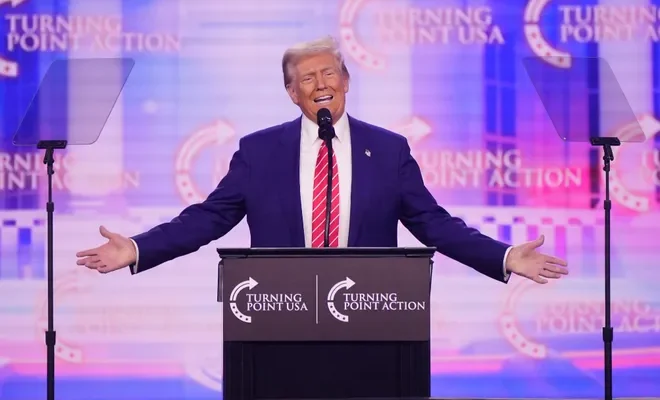Ninety-one. That’s the number of felony counts former President Donald Trump faces in criminal cases spanning four states. It’s the number that Edythe Ford, a longtime community activist in Detroit, said she can’t get out of her head as she’s begun canvassing and assisting voters for the 2024 presidential election.
Ford said Trump caused racial divisiveness in the country, made it harder for communities of color to get jobs and helped obstruct voting and women’s rights.
“He’s just caused so much pain and suffering. I don’t want to… we can’t go back to that,” said Ford, a member of Detroit Action and community engagement director for MACC Development, a nonprofit. “The middle-class and low-income communities will suffer greatly – again.”
Andrea Mercado, the executive director of Florida Rising, a nonpartisan nonprofit that leads civic engagement and helps to educate and register voters in Black and Latino communities, is just as blunt in her assessment of the leading GOP contender.
“(Trump) built a campaign stoking racial animus with a promise to deliver solely for white working-class voters, and we saw corporations and the rich get richer and others hurt in the process,” Mercado said. “If he wins, we enter a new chapter in American history, as his playbook is no friend to marginalized people.”
With the presidential election a year away, members of several grassroots voting rights groups say underrepresented people nationwide are concerned about the prospect of having Trump once again as commander-in-chief. But they’re just as worried about voter accessibility and suppression efforts, the rising cost of living, affordable health care, a continued lack of jobs and an uneasiness about whether President Joe Biden is paying attention to their concerns.
This all comes as many surveys of registered or likely voters, including a USA TODAY/Suffolk University Poll last month, show a presidential race that is effectively tied. Meanwhile, a USA TODAY/Suffolk University Poll of unlikely voters − those who are eligible to vote but say they probably won’t − gives Trump a significant lead over Biden with one year to go.
“There is already a lot of noise out there that feels like a food fight in a high school cafeteria,” said Julie Fernandes, associate director of the Rockefeller Family Fund, a nonprofit that manages the Democracy & Power Innovation Fund, which works with state-based organizing groups. “It can make some voters feel less powerful and less seen and heard on the issues that matter to them.”



